Before you get in there
Who are they?
 It’s not rocket science to know that if you want a job you should do your research on that company:
It’s not rocket science to know that if you want a job you should do your research on that company:
- What matters to them?
- What is their brand like?
- What does their website look like?
- Does it talk about individuals, mission statements, ethos, values or charitable work?
- How do they present themselves?
Who am I?
 Turn on the TV, phone or laptop and just by watching an advert, you can work out what they are selling, what age it’s intended for, what kind of person it’s aimed at and even where their ideal demographic likes to eat or travel to. None of that is by accident. A strong brand attracts the right people. And just like organisations want to attract the right customers they also want to attract the right staff. Therefore before you even get to the interview really take the time to answer the questions above on yourself:
Turn on the TV, phone or laptop and just by watching an advert, you can work out what they are selling, what age it’s intended for, what kind of person it’s aimed at and even where their ideal demographic likes to eat or travel to. None of that is by accident. A strong brand attracts the right people. And just like organisations want to attract the right customers they also want to attract the right staff. Therefore before you even get to the interview really take the time to answer the questions above on yourself:
- What matters to you?
- What is your brand like?
- What do you look like online?
- What is your mission statement, ethos, values and charitable interests?
Practice, practice practice
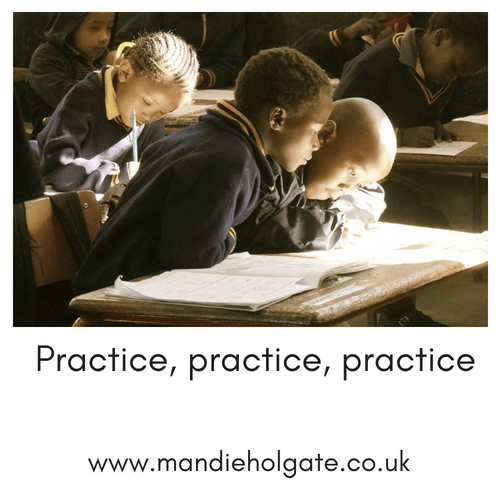 Interview skills is a bit like any communication skill especially public speaking; you need to consider what you want to get out of this communication and they want to get out of this communication too. To do this, it is about having the right skills and the right mindset. Like public speaking or any communication where you have a vested interested, an interview’s results can be damaged by not ensuring you look after both the mindset and skill set. For instance, you could have an awesome positive attitude; however if you’ve not done your research and physically prepared accordingly, you could still fail. Likewise, if you have all the right skills but lack the right mindset, again you could fail. To get around this you need to be prepared mentally. This works well for big moments in life too. Really visualize walking away from the venue, secretly grinning from ear to ear because you got exactly the result you wanted, i.e.:
Interview skills is a bit like any communication skill especially public speaking; you need to consider what you want to get out of this communication and they want to get out of this communication too. To do this, it is about having the right skills and the right mindset. Like public speaking or any communication where you have a vested interested, an interview’s results can be damaged by not ensuring you look after both the mindset and skill set. For instance, you could have an awesome positive attitude; however if you’ve not done your research and physically prepared accordingly, you could still fail. Likewise, if you have all the right skills but lack the right mindset, again you could fail. To get around this you need to be prepared mentally. This works well for big moments in life too. Really visualize walking away from the venue, secretly grinning from ear to ear because you got exactly the result you wanted, i.e.:
- How do you feel?
- What was said?
- What is going to happen next?
- What are you wearing?
- Where are you?
In the room
How you act
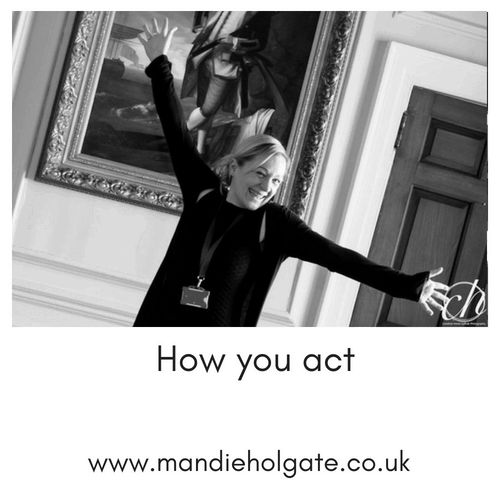 I’m very aware that so far I’ve not told you what to say to those difficult questions that really throw you and that’s because if you get everything else right, those questions (and their answers) become less important because overall you’ve still had the chance to shine and impress. When you walk in that room, you want to look like you should be there (and are pleased to be there) but not like you own the town. Arrogance can cost you the job and there’s a fine line between confidence and arrogance. Make eye contact. Are you the kind of person that can get served first in a packed bar? Then it’s a good chance you’ve sussed eye contact. Eye contact is not just about the eyes, it’s about your body too. How do you stand? With confidence? Do you look like a bunny trapped in the headlights of a car? Or happy to be here? This works on two levels, first it makes you look confident and secondly, it makes the other people in the room feel more comfortable. Try changing the way you sit and act in a room and watch how those around you can change too. We feed off other people.
I’m very aware that so far I’ve not told you what to say to those difficult questions that really throw you and that’s because if you get everything else right, those questions (and their answers) become less important because overall you’ve still had the chance to shine and impress. When you walk in that room, you want to look like you should be there (and are pleased to be there) but not like you own the town. Arrogance can cost you the job and there’s a fine line between confidence and arrogance. Make eye contact. Are you the kind of person that can get served first in a packed bar? Then it’s a good chance you’ve sussed eye contact. Eye contact is not just about the eyes, it’s about your body too. How do you stand? With confidence? Do you look like a bunny trapped in the headlights of a car? Or happy to be here? This works on two levels, first it makes you look confident and secondly, it makes the other people in the room feel more comfortable. Try changing the way you sit and act in a room and watch how those around you can change too. We feed off other people.
How you breathe and speak
 A space in a sentence is not the same as an “Um” pause. Know the difference. One has confidence the other is feeling out of their depth. Practice lots of kinds of questions and practice out loud your replies. As someone that has helped a lot of people become successful public speakers, I know the importance of breathing for you and your audience. So practice, because where and how you breathe can impact on the way you come across:
A space in a sentence is not the same as an “Um” pause. Know the difference. One has confidence the other is feeling out of their depth. Practice lots of kinds of questions and practice out loud your replies. As someone that has helped a lot of people become successful public speakers, I know the importance of breathing for you and your audience. So practice, because where and how you breathe can impact on the way you come across:
- What is their style? -- Know the style of the person asking the questions.
- Do they speak fast?
- Do they like to use jargon? (Or do they hate it?)
- Do they speak quietly or loudly?
- Do they speak in long sentence?
- Do they ask open questions or closed?
Down to the evil interview questions
Think of it from the interviewer’s point of view, they’ve got to fill a position in their organization and they want their business to be the best. They want to know that the person they ask these questions to will be perfect to fit in their team, make the difference and help them achieve what they aim to. A big responsibility to achieve all of that in a few questions. So how can they find out who someone really is? How can they work out what is true in your CV and what you researched on line as the “top 10 things to include in your CV”? These questions are a mixture of tedium of asking the same question so many times, researching what questions you should ask (yes, it’s not just the interviewee that will hit the search engines!) and trying to ask questions that enables them to remember the individual behind each answer. So let's look at what to say:I don’t know
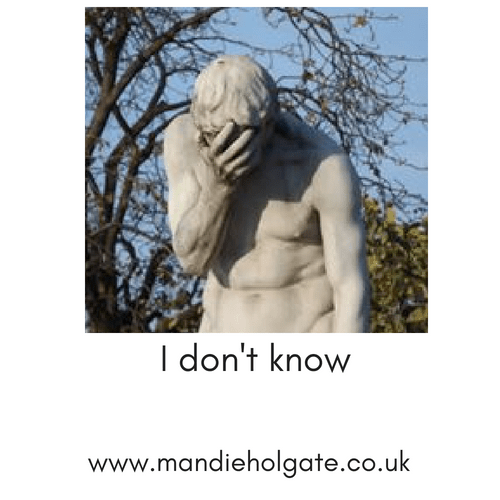 Not knowing the answer is not against the law and no one knows everything. So if you don’t know the answer, the first rule is don’t lie. You will get found out. Think about this right now, what could be an answer to a question that you don’t know that enables you to look honest and keen to learn more and capable in areas around this subject? Preparing some answers (Out loud so you can hear how they sound) means you can feel more prepared. And while I could write the words to say, they would be my words and not natural to you and so could come across as fake. The key to shining in an interview is allowing who you really are to shine through. (If they don’t like that, it could be this is the wrong company, not you’re the wrong candidate!)
Not knowing the answer is not against the law and no one knows everything. So if you don’t know the answer, the first rule is don’t lie. You will get found out. Think about this right now, what could be an answer to a question that you don’t know that enables you to look honest and keen to learn more and capable in areas around this subject? Preparing some answers (Out loud so you can hear how they sound) means you can feel more prepared. And while I could write the words to say, they would be my words and not natural to you and so could come across as fake. The key to shining in an interview is allowing who you really are to shine through. (If they don’t like that, it could be this is the wrong company, not you’re the wrong candidate!)
Don’t’ be a politician
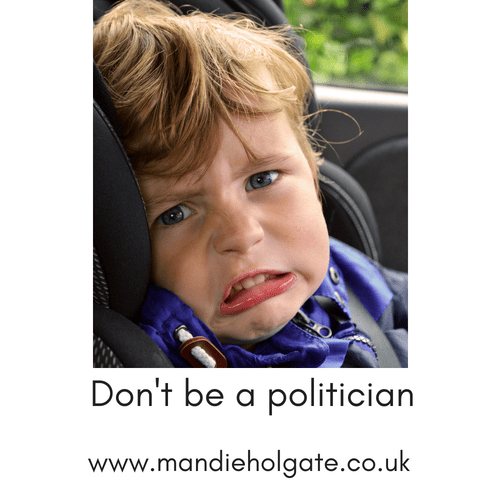 Another dangerous approach is to keep talking without answering the question. This is an infuriating technique that could cost you points. Think about answers that you can give that showcase what you do know in this field. “I’ve not had a lot of experience with xxx however I’ve had great results using xxx and it led to a xxx% increase in sales so I feel I have the right skills to migrate to xxx” Thinking about what you are good at and how it relates to the job you are going for means you can prepare lots of answers like this. When working with someone who is looking to pitch to an audience or engage an audience with an idea that they may not (initially) like, you don’t want to tell the audience what to think, however you do want to answer the negative questions that are in their heads. The same applies in an interview. What questions do you feel would worry you if an interviewer asked them of you? How could you alleviate their concerns in prepared answers?
Another dangerous approach is to keep talking without answering the question. This is an infuriating technique that could cost you points. Think about answers that you can give that showcase what you do know in this field. “I’ve not had a lot of experience with xxx however I’ve had great results using xxx and it led to a xxx% increase in sales so I feel I have the right skills to migrate to xxx” Thinking about what you are good at and how it relates to the job you are going for means you can prepare lots of answers like this. When working with someone who is looking to pitch to an audience or engage an audience with an idea that they may not (initially) like, you don’t want to tell the audience what to think, however you do want to answer the negative questions that are in their heads. The same applies in an interview. What questions do you feel would worry you if an interviewer asked them of you? How could you alleviate their concerns in prepared answers?
Proof is in the pudding
 When you are faced with tough questions, be prepared with examples of how successful you’ve been in the past. For instance, when I first trained as a coach many years ago, I didn’t want to tell people I was a newly qualified coach (newly qualified can sound amateur and not up to the job, right?), so I steered my answer to the fact that I was 1 of the UK’s youngest female automotive Body shop managers with over 20 years experience in business. Proven experience, right? Think about successes in your career and how they can feature in your proof.
When you are faced with tough questions, be prepared with examples of how successful you’ve been in the past. For instance, when I first trained as a coach many years ago, I didn’t want to tell people I was a newly qualified coach (newly qualified can sound amateur and not up to the job, right?), so I steered my answer to the fact that I was 1 of the UK’s youngest female automotive Body shop managers with over 20 years experience in business. Proven experience, right? Think about successes in your career and how they can feature in your proof.
Steer clear of extravagant exaggeration
 While it’s important to showcase “why you” with proof and to be confident. No one likes a big head, so be mindful of your language. I’m over enthusiastic at the best of times, so I have to be mindful of my audience and ask myself “is this the kind of language that makes them feel comfortable or am I making myself stand out for the wrong reasons.” Feel free to say “I had a xx% increase in productivity from the team thanks to this idea;” however, avoid “It was due to my brilliance that I created this system that helped the department increase productivity by xx.” How does your choice of language impact on the way you come across? Are you someone that risks exaggeration or exuberant language?
While it’s important to showcase “why you” with proof and to be confident. No one likes a big head, so be mindful of your language. I’m over enthusiastic at the best of times, so I have to be mindful of my audience and ask myself “is this the kind of language that makes them feel comfortable or am I making myself stand out for the wrong reasons.” Feel free to say “I had a xx% increase in productivity from the team thanks to this idea;” however, avoid “It was due to my brilliance that I created this system that helped the department increase productivity by xx.” How does your choice of language impact on the way you come across? Are you someone that risks exaggeration or exuberant language?
Know when to shut up
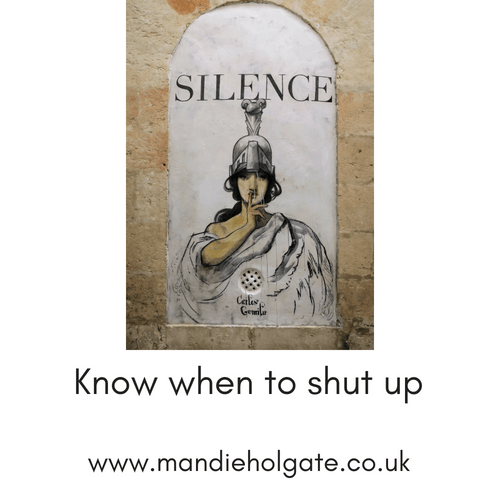 If you are digging yourself in a deep whole with an answer that goes nowhere. Know when to stop talking. Taking a moment to prepare your prospective replies can help with this. If you’re concerned about not talking or having an answer, repeat their question back to them in this style: “That is a good question, ‘what is my view on my ability to deal with xxx?’” and in doing so, you create the space to think. Thinking is not banned in an interview. If anything, a well prepared reply says you are confident in your own skin and are taking this seriously instead of just splurging out the first thing that comes into your head.
If you are digging yourself in a deep whole with an answer that goes nowhere. Know when to stop talking. Taking a moment to prepare your prospective replies can help with this. If you’re concerned about not talking or having an answer, repeat their question back to them in this style: “That is a good question, ‘what is my view on my ability to deal with xxx?’” and in doing so, you create the space to think. Thinking is not banned in an interview. If anything, a well prepared reply says you are confident in your own skin and are taking this seriously instead of just splurging out the first thing that comes into your head.
The answer for "What is your biggest weakness?"
They ask the question that you feel can only make you look bad, so how do you handle it? Remember the reason they are asking you these questions is because they want to find out who you are really are. They need to know who they are employing, so remember they are not trying to trick you. Everyone makes mistakes. Everyone has new things they need to learn. Everyone has something they wished they had handled differently. Everyone has something they’ve said they regretted. Think of a moment in your professional life that you wish you had handled differently. How can you word it so that it sounds like you not only recognized the need to do something differently but learned something powerful from it too? If you want to see how this works. Listen to the radio and a seasoned pro turn any question around so that they get to talk about what they want to. I once trained a team who were likely to end up on the radio. They knew they weren’t going to be asked to speak about their business (which they wanted to) and it was likely to be a conversation about something random like mince pies. I remember one member of the team saying, “this is impossible” only for us to change their style of communication that meant within 2 sentences talking about mince pies had turned into talking about what the business was doing locally.” It takes practice but can be done and is a skill you won’t just use in interviews, you could find yourself using this in every area of your life. Another skill to copy from presenters and those great at TV and radio is their ability to bat the conversation back to the other person in a respectful way. While the interviewer is keen to hear you speak, it’s important to know when to stop talking and enable the interviewer to take control of the conversation again. A big issue for candidates is that they are so keen to say everything relevant to the subject that has been raised that they don’t know when to let the interviewer take back the conversational control. By practicing what you are saying and what you want it to say about you, you will feel more comfortable with giving the control back.Final thoughts
I heard a story years ago that the English Rugby team were playing atrociously. They then employed a coach (not a sport coach, but a coach like myself) to help the team perform better. One of the strategies they put in place was that in the second half, the team would come back on the pitch in a clean kit. This enabled them to feel fresh and new to the game bringing a new attitude and mindset. I’ve been unable to find any proof of this story (and I’m always keen to verify what I share with you). However, I can tell you that this clean kit approach has worked with many clients who’ve found themselves making a mistake and not wanting 1 mistake to spiral into a cacophony of failure. That they stop dragging up what has gone wrong. Stop the panic from escalating and start as if this is the very beginning. It’s powerful because the brain gets itself back to a positive state. Thus if you find yourself drowning in a bad answer, let it go and concentrate on the result you want. And get that fresh feeling of “I’ve arrived and will do my best” or “If I’m not right for them, then they are not right for me.” What could be your go to thought that gets you back to fresh thinking be? Ultimately an interview is like any powerful communication you have in your life. Be it at work, at home, your child's school, your parents doctor or even trying to get a flight out of a fog bound city. The skills you learn to communicate powerfully can have a knock on effect across your entire life. So it's worth investing some time and honing your skills.from Lifehack - Feed https://ift.tt/2DyIS1c
No comments:
Post a Comment